Protests around the world in pictures
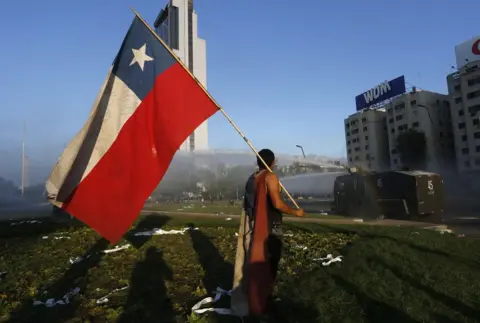 Getty Images
Getty ImagesIn cities around the world, people are taking to the streets.
Here's a look at seven places that are seeing varying levels of demonstrations - from peaceful marches to violent clashes.
Chile
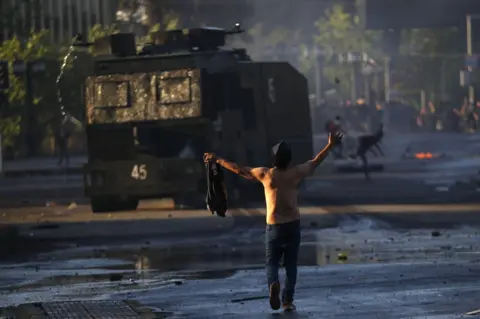 Getty Images
Getty ImagesSoldiers and tanks have been deployed on the streets of Chile for the first time since 1990, when the country returned to democracy after years of military dictatorship.
A state of emergency was declared in the capital, Santiago, on Saturday after protests sparked by a now-suspended increase in metro train prices turned violent. The demonstrations have since widened out to include the cost of living and inequality.
At least five people died in protests over the weekend - after looters torched a garment factory and supermarket - with more disruption expected on Monday.
President Sebastián Piñera, a billionaire conservative, has described demonstrators who have caused fires, set up barricades and looting as "criminals".
"We're at war against a powerful and implacable enemy who doesn't respect anything or anyone, and who's willing to use limitless violence and criminal acts," he said.
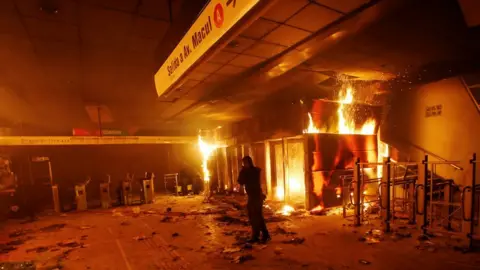 Reuters
Reuters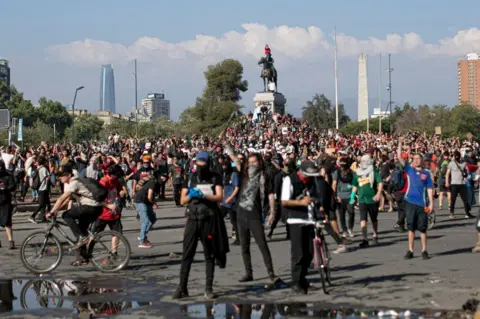 Getty Images
Getty ImagesLebanon
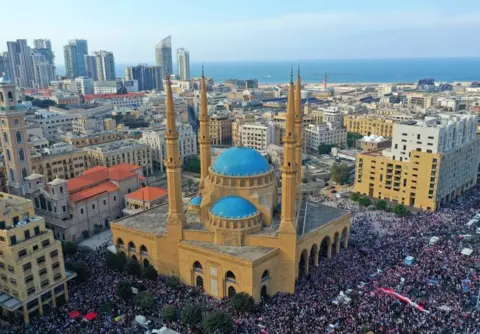 Getty Images
Getty ImagesFrom South America to the Middle East, where protests about corruption and austerity in Lebanon are moving into their fifth day.
Hundreds of thousands of people have been on the streets angry about proposed new taxes - including one on voice calls via WhatsApp and other messaging services that was quickly scrapped after being announced last Thursday.
Power cuts and uncollected rubbish are also a source of anger for protesters.
The country's coalition government looks likely to approve some economic reforms, like scrapping taxes and halving salaries of top officials, to stop the protests.
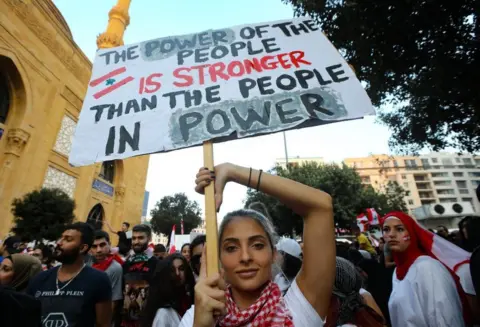 Getty Images
Getty Images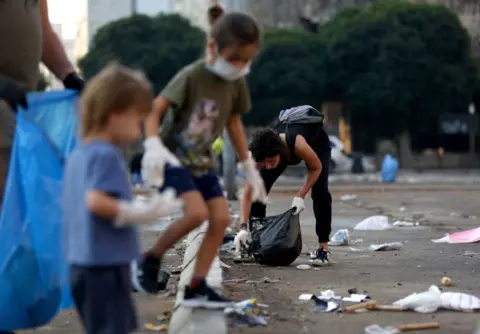 Getty Images
Getty ImagesBarcelona
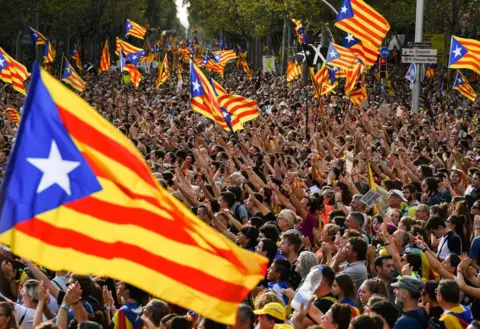 Getty Images
Getty ImagesThe weekend started peacefully in Barcelona, with 500,000 people on five marches gathering together in the city centre. But it later descended into violence with some protesters throwing objects at police - who responded with tear gas, rubber bullets and water cannons.
It follows prison sentences being handed to nine separatist politicians in Spain who want Catalonia - the Spanish region where Barcelona is - to form an independent country.
By Sunday - the seventh day of protests - demonstrators sat in front of the Spanish national police headquarters with their smartphone torches turned on.
Acting Spanish Prime Minister Pedro Sánchez warned that those who caused disturbances would face justice.
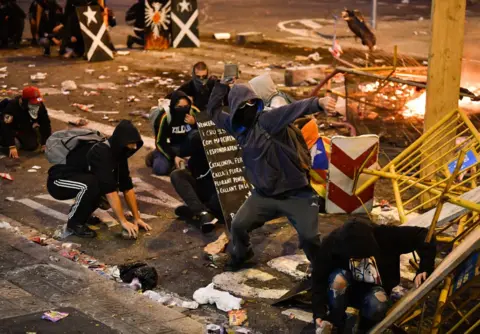 Getty Images
Getty Images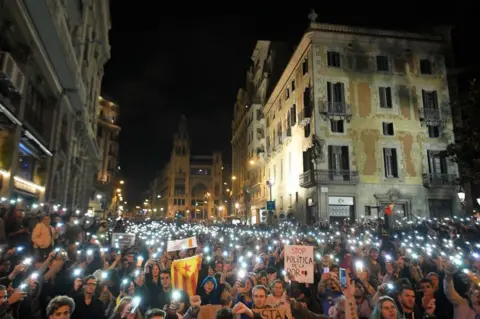 Getty Images
Getty ImagesHaiti
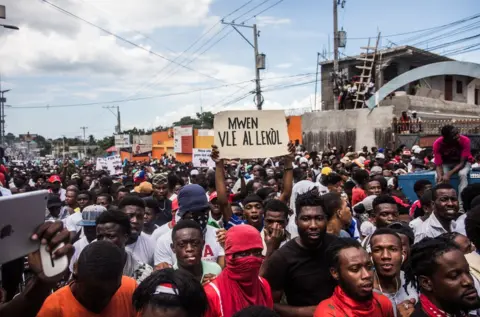 Getty Images
Getty ImagesIt's not gained as much attention as demonstrations in other countries recently, but Haiti has been going through weeks of protests - not for the first time this year - over an economic crisis unfolding on the Caribbean island.
Haitians are demanding the resignation of President Jovenel Moïse, who they blame for fuel shortages and worsening inflation - when the cost of living rises, leading to a decline in the value of money.
A prominent journalist who was covering the protests was found dead in his car with gunshot wounds a few weeks ago.
The president previously rejected calls for his resignation, saying he would not leave the country in the "hands of armed gangs and drug traffickers".
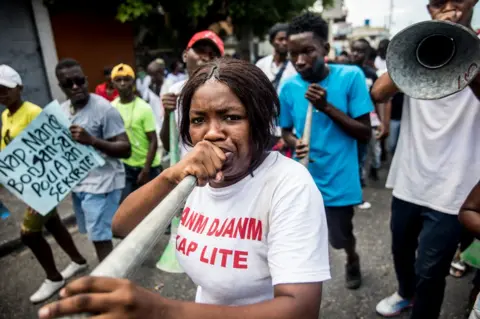 Getty Images
Getty Images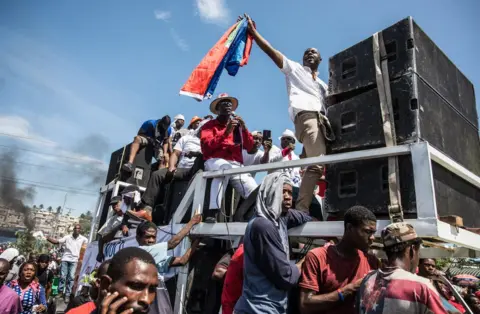 Getty Images
Getty ImagesLondon
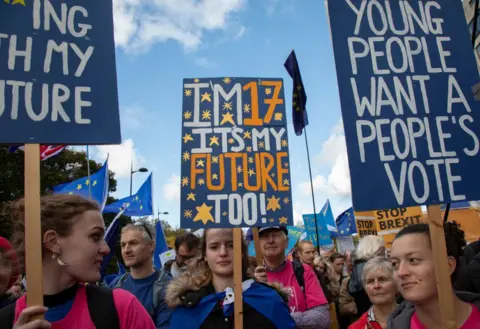 Getty Images
Getty ImagesThis one's not ongoing but up to one million people took to London's streets on Saturday, according to organisers of the "People's Vote march", to demand a "final say" on Brexit.
People from across the UK marched on Parliament Square, with some saying it was the last chance to show how they felt about getting another Brexit referendum, six months on from the last rally of this scale.
Shadow chancellor John McDonnell and Liberal Democrat leader Jo Swinson were among the politicians who addressed the crowd, while inside the House of Commons MPs were voting for another delay to Brexit.
The government is trying hard to get MPs to vote on the prime minister's deal on Monday.
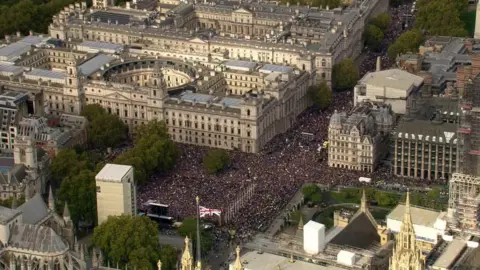 AFP
AFP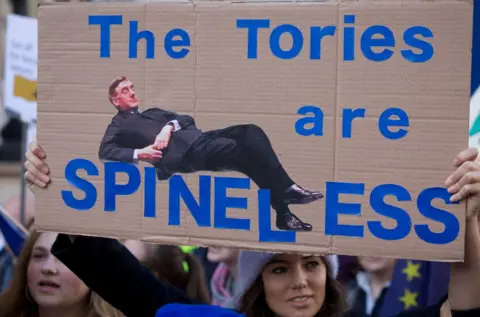 Getty Images
Getty ImagesBelfast
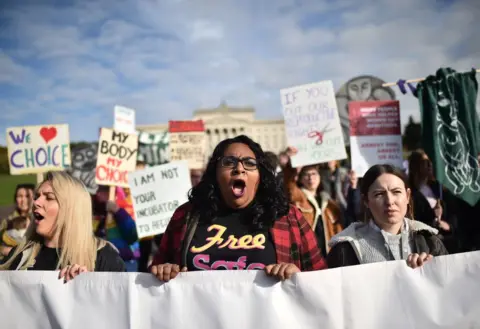 Getty Images
Getty ImagesPoliticians in Northern Ireland are sitting in the country's parliament, Stormont, for the first time in nearly three years after being recalled in a last-ditch attempt to stop changes to the abortion law.
Northern Ireland has been without a devolved government since January 2017 - with politicians in the House of Commons passing some key laws on behalf of Northern Ireland since that time.
A law which requires the government to liberalise abortion and extend same-sex marriage to Northern Ireland will come in at midnight - something unionist parties don't want to happen.
It's unlikely politicians there will be able to act in time to change anything - but both those for and against abortion laws being relaxed have been out with placards to let their feelings be known.
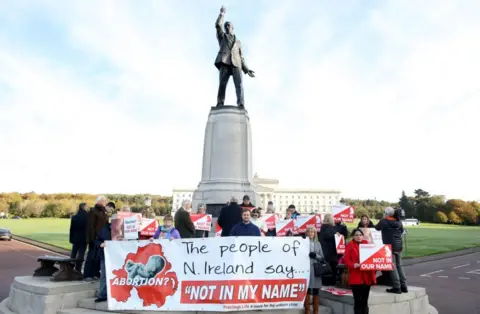 Getty Images
Getty ImagesHong Kong
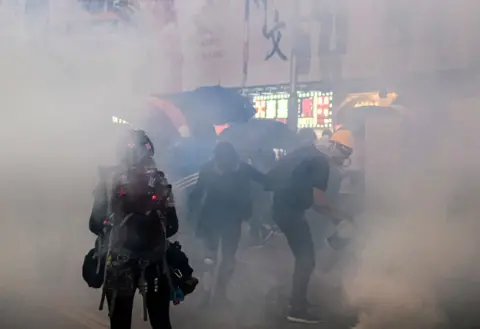 Getty Images
Getty ImagesThere couldn't be a round-up of protests without mentioning Hong Kong - where pro-democracy demonstrations have been taking place for the past four months.
Authorities didn't give permission for this latest march, but organisers say 350,000 people went out anyway - partly fuelled by anger over an attack on pro-democracy leader Jimmy Sham last week which left him in hospital.
A hardcore element of the group launched petrol bombs at a police station, although not all of Sunday's demonstrators were violent.
"The government are now refusing to authorise any peaceful protest," one person told the BBC at the demo. "That means anyone who comes out will inherently be breaking the law. So that's the tactic the Hong Kong government is using."
Hong Kong's leader Carrie Lam called for an end to the protests in parliament last week.
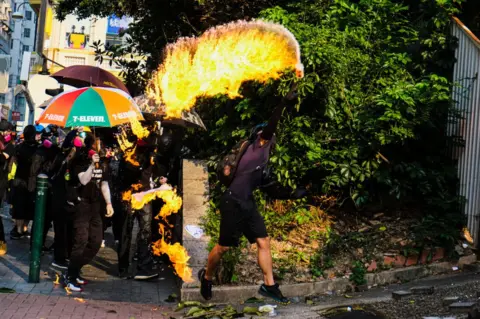 Getty Images
Getty Images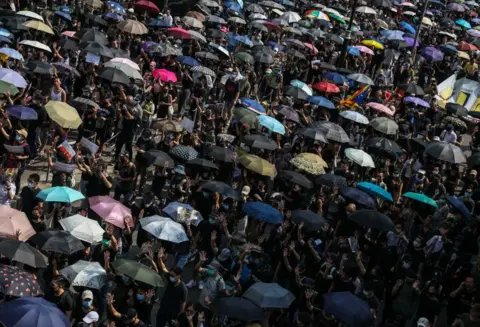 Getty Images
Getty Images